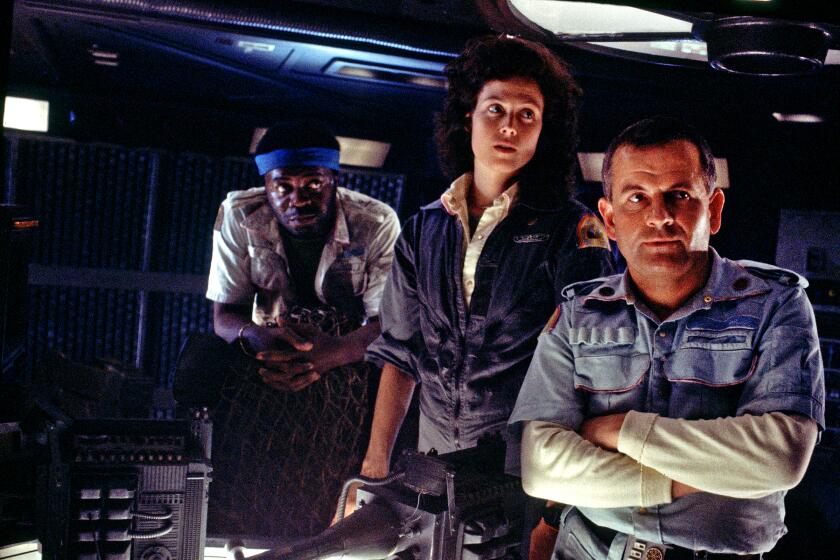Review: ‘Last Cab to Darwin’ strains to deal with end-of-life issues
Coincidentally arriving in Los Angeles just a week after California’s End of Life Option Act went into effect, the Australian import “Last Cab to Darwin” provides an emotionally textured look at one older gent’s decision to take his waning life into his own resolute hands.
Although this stirring, darkly humorous piece is based on the 2003 play by Reg Cribb, who co-wrote the film’s script with director Jeremy Sims, it feels anything but stage-bound. For large swaths, it’s very much about the open road as Rex MacRae (Michael Caton of “The Castle”), a longtime taxi driver with terminal cancer, motors 3,000 kilometers (nearly 1,900 miles) from his small mining town of Broken Hill to seaside Darwin in the Northern Territory. That’s where the progressive Dr. Farmer (Jacki Weaver, in a curious black wig) is spearheading a controversial euthanasia program that may provide a more proactive option for the hospital-averse Rex.
Rex reluctantly makes headlines as he volunteers to be Dr. Farmer’s first test patient, leaving behind his jovial drinking buddies (John Howard, Alan Dukes, David Field) as well as his neighbor and sometimes lover — the flinty, indigenous Polly (Ningali Lawford-Wolf) — and heads north.
But this is no last-chance-at-the-brass-ring highway adventure à la “Harry & Tonto” or “The Bucket List”; this one’s more about catharsis than uplift. In fact, it seems a minor miracle that the physically-compromised Rex gets himself to Darwin at all, much less as seemingly quickly as he does.
He does, however, encounter a few unplanned detours en route that net him two unlikely travel mates: Tilly (Mark Coles Smith), a footloose, would-be footballer and Aboriginal charmer; and Julie (Emma Hamilton), a transplanted British nurse marking time as a backwater barmaid. Unfortunately, these characters, vivid though they may be, feel more like diversions and devices than organic influences on Rex’s emotional arc.
Affecting him the most, though, is Polly, whom we sporadically cut back to as she irascibly adjusts to Rex’s “exit plan.” The push-pull between this odd couple, fueled by stubbornness, pride and the not-so-subtle effects of external racism, makes for a complicated, intriguing relationship. One almost wishes she’d hopped in the Darwin-bound cab with Rex.
Surprisingly, the film falters once Rex reaches his destination as things turn a bit contrived and implausible. (Rex is reportedly inspired by real-life Aussie cab driver Max Bell, but it’s fair to assume fact and fiction often parted ways.)
Part of the problem lies in the characterization of Dr. Farmer, who, as written here, seems to lack focus as well as the strength of her convictions; Weaver’s uncertain performance doesn’t clarify matters. Rex’s final final decision, although sentimentally satisfying, may feel anticlimactic and unearned.
Still, there’s much to admire about this alternately tough and tender film, including a fine turn by Caton, some striking outback scenery, and many resonant thoughts about living — and dying.
-------------
‘Last Cab to Darwin’
Not rated
Running time: 2 hours, 3 minutes
Playing: Laemmle Music Hall, Beverly Hills
More to Read
Only good movies
Get the Indie Focus newsletter, Mark Olsen's weekly guide to the world of cinema.
You may occasionally receive promotional content from the Los Angeles Times.









